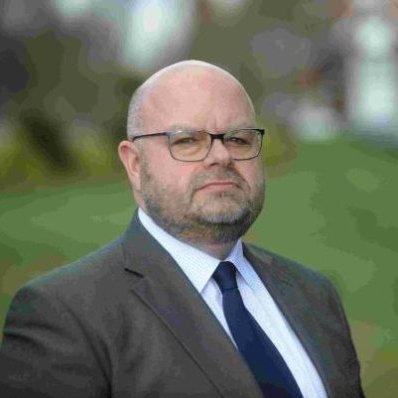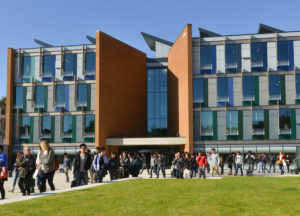This month we begin the process of deciding what services the city council can provide to you, how they are paid for and what your council tax bill will be for 2017-18.
The process will end with Budget Council in February and here are some facts you need to know before we start.
The council spends around £760 million a year on hundreds of hugely different services from street cleaning to schools, libraries to homelessness and street lighting to licensing bars and restaurants. The biggest part of our budget is social care, at around £163 million.
In this budget we will have to address a predicted budget gap of £18 million through savings, following a similar level of savings already being implemented this year.
This is because the government is substantially reducing the Revenue Support Grant to councils by 2020 and because we have to meet growing costs and demands, primarily across adults and children’s social care services.
The reduction in grant funding alone is around £27 million by 2020. Our overall funding has reduced by around £45 million over the last five years which, added to increasing costs and demands, has resulted in the very large annual savings we have and will continue to have to make.
As the government grant support reduces so will the funding available for schemes such as free bus passes for older people and people with disabilities.

All the surplus income we receive from parking charges, around £12.7 million, goes toward funding this and other essential transport services.
Similarly, we are also having to put another £1.5 million into support for people who can’t afford to pay all of their council tax, which used to be fully funded by government grant.
The government is now also looking at councils taking financial responsibility for some NHS services.
Looking after older people, children in care and people with disabilities is already the largest part of our budget. Early estimates show that next year it will cost us at least £10 million more.
The government will again, through councils, allow 2 per cent to be added to your council tax bill to pay for this but that will only raise around £2.4 million, not enough to keep up.
Your council tax used to make up around a third of what we spend on General Fund services, with another third made up from fees and charges and the remaining third from business rates and government grant.
To become more self-financing, the government wants us to increase income from fees and charges, which includes things like registering births, pest control and planning applications.
There are also uncertainties regarding business rates. The government currently retains half of our local business rates, around £54 million, will be revaluing business rates next year and is providing a full rebate to small businesses.
We don’t know how much we will receive from business rates by 2020 so we need to ensure more businesses come to the city and all pay their fair share.
As more students come to the city, fewer households pay council tax. This is again determined by government and, while being a university city is part of our identity and is also important for local businesses, there’s no ignoring the financial impact of providing services to non-council tax paying households.
Landlords who let properties to students are also protected from business rates by the government.
Any new homes, such as those at the Marina, do pay full council tax.
Earlier this year we ran our City Innovation Challenge to find out if you, schools and businesses had your own ideas to help out as our budgets shrink.
Many said we should look to volunteering, and we have recently agreed a new volunteering policy.
Meanwhile, we are changing how we deliver services, with much more online and more focus on joined up services in your neighbourhoods, designed by you around what works in your community.
We are investing in bins that need emptying less so save money, in more efficient council buildings like the revamped Hove Town Hall, more partnership working with other agencies and of course new ways to raise money by selling services like garden waste collection.
All this means you may be paying more for less but we will make every effort to focus the money we have on getting the basics right, delivering the best possible services to you, and doing the right thing by those in our city who need help.
It is a huge and very difficult task but we are up for the challenge if you are.
Councillor Warren Morgan is the leader of Brighton and Hove City Council.








And to think that when the Greens made similar points five years ago, cllr Morgan snarled, “make no mistake, these are Green cuts!”
In 2011/12, when the Greens brought in early discussion of the following February’s Budget, Morgan opposed a modest rise in Council tax which, year on year, would have eased some of the following years’ difficulties.
And, of course, an Ed Miliband government would have continued with the same “austerity” measures which have. elsewhere in the world, made the British destruction of the public-library system a laughing-stock.
One easy way to save our money is to have no more vanity projects such as cycle lanes which are hardly used and reduce the number of traffic lights which cost an arm and a leg to install and maintain and greatly increase traffic pollution.
Having read Councillor Warren Morgan’s article closely, I find that the council is spending my money on things of which I do not approve. My council tax direct debit is by far the largest that comes out of my bank account each month.
I feel that we should be given far more say on how we want our money to be spent.
One of the best ways to deal with cuts is to reduce waste and improve efficiency. BHCC happily pays £14,000/ year per grotty bedsit to house one person in unsupervised HMOs to unscrupulous private landlords for “temporary, emergency” accommodation. “Temporary” can mean days, weeks, months years. Much of this expenditure is “spot purchasing” without any contracts in place to ensure the tax payer gets value for money and that good quality is provided. This smacks of financial impropriety and is currently subject to corruption investigation. Paying private landlords £280/week for a grotty bedsit in an HMO when the Local Housing Allowance (LHA) rate is £82.66 /week for shared accommodation in inexplicable. BHCC can in no way justify such gratuitous waste of taxpayers’ money – 340% of the LHA rate to private landlords that have a cosy relationship with BHCC and without any contracts… indefensible. Cut the waste first then deal look at what services need to be scaled back.
Sam – That money for Emergency Housing actually comes from Central Government, they also set up a trust and moved 500 properties to this trust so they can charge LHA rates and increase the income from Housing Benefit or Rent payments. So thats not the problem.
The problem which currently isn’t being spoken about is Adult Social Care – They are housing vulnerable people for up to £45 a night in some disgusting conditions, because there is a care element which I have heard is rubbish in some cases, there is much wastage in the council, applications being wrongly assessed, forcing legal help, this then means Appeals and Possible Court Action, this takes up much time because they are being held at gunpoint by some landlords who are threatening to pull properties out of action.
There is also a problem with overcharging for procurement services, Mears and others are deliberately commuting fraud and getting away with it.
What was the councils response to saving money, take away the free water machine in barts house because it was too expensive. What a joke they really are sometimes.
They will sell off Kings House, which will be redeveloped into Luxory accommodation and business spaces. Continuing the trend of New Labour, we need a new direction, we can borrow at record low rates, but we aren’t building for the most needy.
I hear there are plans ahead for a new trust which will be in the property development business, keeping housing stock out of LA hands, a bit like a housing association but not. we will need to see the plans but we need to get in tune with the reality. 8% of all housing is social housing, down from 40% in the 50’s/60’s. This helped grow the countries economy and pay off war debt.